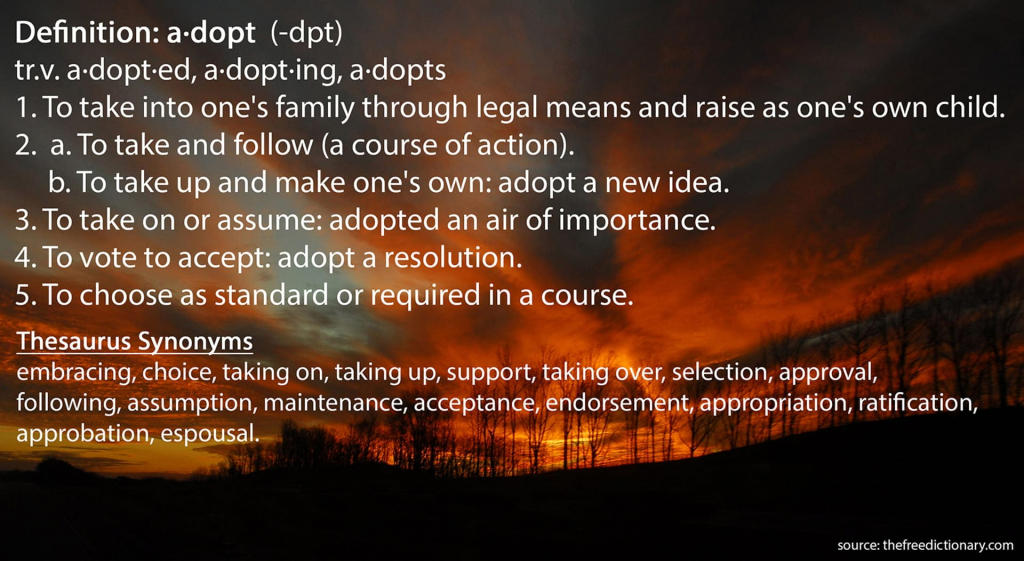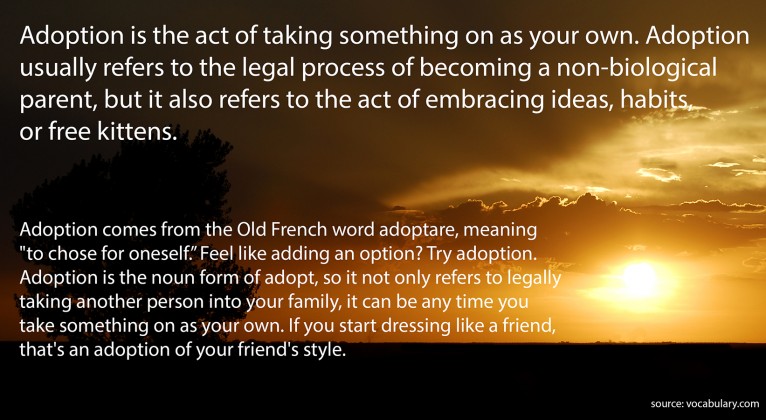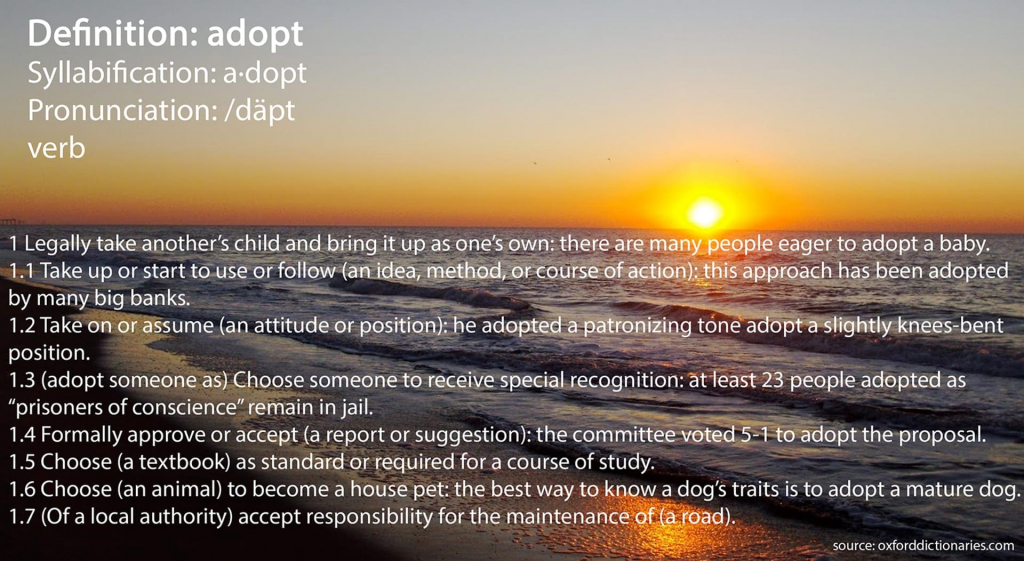Adopt – What’s in the Word?
It seems to be a common theme for me lately to catch myself over-analyzing everything to do with adoption. When I don’t, and then see other adoptive parents upset about something, I ask myself, “Should I join in and be upset, too?” I wonder, “Am I missing something here?”
I have been told over and over, by books, by friends, by family, by adoption professionals, and by myself, that I don’t have to always be thinking adoption at all times. Sometimes as adoptive parents, we can take on our child’s story as our own story. We anticipate pain they may never feel. We prepare for the worst and hope for the best. And really, is that so bad? It’s what all parents do. But as adoptive parents, we take it to a whole new level.
When we put too much focus on adoption in our everyday lives, we are saying that it is what defines our family. When we project our fears about how things will affect our children, we inadvertently are flooding our children with fears that they may never even have on their own. My aunt told me the other day (she’s a wise woman) that, in her experience, children don’t make a big deal out of things unless we make a big deal out of them first. Don’t get me wrong–neither she nor I are trying to say you can’t nip things in the bud or be proactive in making sure your children have good experiences, but we can’t change everything, especially just because we don’t like it. Sometimes, we just don’t like things, but they are an unchangeable fact.
This is where the word “adopt” comes in. This has been something I have seen numerous times in adoption communities, and I may catch some really negative feedback for voicing my opinion on this stance. Try to not hate me too much.
I am here to say: Adoptive parents, birth parents, and people who have been adopted do not own the term “adoption.” Shocking, I know!

Using adopt, adoption, adopting, or any variation does not, let me repeat, DOES NOT, devalue the adoption of your child. As parents it is our duty to teach our children. Just as many verbs and nouns in the English language have multiple definitions, the word “adopt” is no different. We can chose to be offended by people adopting dogs, adopting highways, and even as I recently saw in a pizza place ad, adopting toppings, but we simply must understand that we did not coin the term when we became adoptive parents. While a new pizza topping may be tasty, it probably wasn’t in good taste to advertise “adopt a topping.” But was it incorrect to use the term? I’m not an English scholar, but I am just going to go with, no, not incorrect. Just insensitive. (You probably need to see the whole ad to understand why it was insensitive.)

We can adopt the idea that it is okay to not be offended. We can adopt the notion that there are many ways to use the word adopt. We can adopt an attitude that we can tackle problems as they arise and not just assume they will ever come to light. We can adopt the acceptance that the actions of others are sometimes with a well-intentioned agenda that are insensitively executed. And, for that matter, we can adopt a road, a whale, an orphan oversees, or even an idea.

So when talking adoption, we don’t have to join in and be offended if we truly aren’t offended. We can choose to see the bigger picture and that using the word “adopt” does not mean that our children will suddenly think every idea, book, law, highway, puppy, and whale had a legal adoption into our family if we use the term. If they do not understand that the definition has many variations, it’s pretty simple: We just explain that to them.








